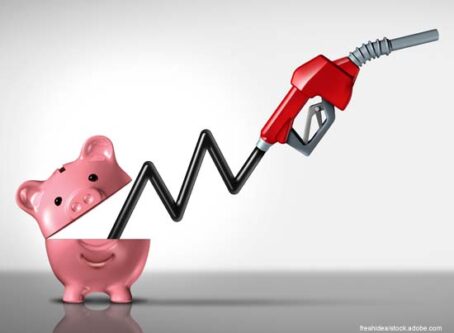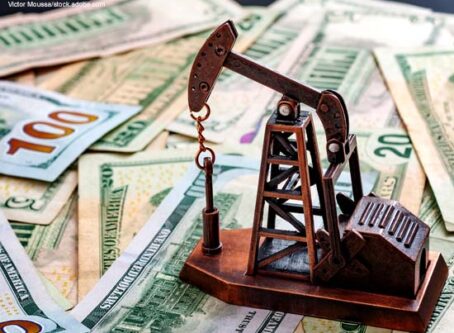Officials in 15 states consider fuel tax collections
During the past six years nearly 30 states have raised or reformed their fuel tax rate. Despite the progress toward addressing transportation funding needs legislators in more states continue to pursue additional revenue enhancements.
The Owner-Operator Independent Drivers Association believes increasing the fuel tax is the most equitable way for states to generate additional revenue.
Below is a list of many states so far this year to have legislation introduced, or talks, to adjust fuel tax rates.
Alabama
Republican Gov. Kay Ivey announced during her inaugural address earlier this year she is calling for a fuel tax increase to help meet the state’s funding needs.
The state now collects 18 cents per gallon on gas and 19 cents on diesel. The fuel rates have remained unchanged since 1992.
Discussion leading up to the convening of the regular session on March 5 has focused on indexing the state’s excise tax rate. The change to indexing would allow for the fuel tax to rise automatically with the rate of inflation.
Republican leaders have opposed efforts to raise fuel taxes in recent years. Instead, the state has relied on borrowing.
Gov. Ivey says it is time to act.
“If we want to compete in a 21st century global economy, we must improve our infrastructure by investing more in our roads, our bridges and our ports,” Ivey said during her address. “It’s been almost three decades since we made any changes. We’ve got to do it now and get it right.”
Arizona
A leading House lawmaker has introduced a bill to more than double the state’s fuel tax rate.
House Transportation Committee Chairman Noel Campbell, R-Prescott, said his bill would ensure that everyone is paying their fair share of ongoing maintenance of the state’s transportation system.
Campbell says the state is nearly $1 billion per year behind in transportation obligations. He adds that the state’s fuel tax is unchanged since 1991.
“The 18-cent gas tax was enough to fund our roads when our population was a little more than half our current size,” Campbell said in prepared remarks. “That, combined with the fact that electric vehicles and vehicles with alternative fuel sources are contributing very little for the roads they use, has created an untenable situation.”
As introduced, HB2536 would increase the 18-cent gas tax rate by 10 cents in 2019. Additional increases of 10 cents and 5 cents would occur in 2020 and 2021. At that time, the gas tax rate would hit 43 cents.
The tax on diesel would be doubled from 18 to 36 cents in 2019. An additional 10-cent increase would take place in 2020 followed by a 5-cent increase in 2021 to total 51 cents.
Electronic and hybrid vehicles would be subject to a “corresponding road usage fee.”
Registration fees for vehicles operated by a combination of electricity and other fuels would be $80 per year. Owners of all electric vehicles would pay another $198 annually.
The bill could come up for consideration in the House Transportation Committee as soon as today.
Arkansas
The House Revenue and Taxation Committee could take up for discussion this week a bill to raise nearly one-quarter of a billion dollars annually for roads.
One provision in the bill from Rep. Dan Douglas, R-Bentonville, would transfer a portion of state general revenue to roads.
HB1260 would also add a 3.5 percent sales tax on the wholesale price of fuel. It is estimated to be the equivalent of a 5 or 6 cent increase per gallon of fuel. The state’s excise tax on gas now is 21.5 cents. Diesel is set at 22.5 cents.
The changes made in both provisions would total $240 million in additional road revenue. The state Department of Transportation would collect 70 percent of the revenue, with cities and counties receiving the other 30 percent.
Gov. Asa Hutchinson has said he is in favor of a highway funding plan, but he does not want to shift funds from one budget to another.
Hawaii
Gov. David Ige is calling for legislators to increase the state’s fuel tax and other vehicle fees to bolster the State Highway Fund.
HB1054/SB1280 would raise the 16-cent fuel tax rate by a nickel to 21 cents on Hawaii Island and other neighbor islands. The tax on Oahu would increase to 22 cents.
Vehicle registration fees and the state vehicle weight tax would also increase.
All revenues would be routed to the state highway account.
The bills await consideration in multiple committees.
Illinois
A group of mayors from the Chicago area are calling for legislators to get a deal done to raise the Illinois fuel tax rate.
Officials say the 19-cent gas tax and 21.5-cent diesel tax have remained unchanged for far too long.
Outgoing Chicago Mayor Rahm Emanuel is among the mayors in support of a 20- to 30-cent increase to pay for needed transit and road work.
The group also wants the excise rates tied to inflation, which would allow for regular increases.
Emanuel’s office says every 5-cent-per-gallon increase in the fuel tax raises about $20 million more in city revenue and more than $250 million statewide.
Gov. J.B. Pritzker has said that many options are on the table to fund transportation work. He has emphasized the need to get something done soon.
“It is time to update and repair our state’s aging infrastructure. Railways, roads, bridges and fresh water arteries are on the verge of collapse,” Pritzker said earlier this year during his inaugural address.
Indiana
One state lawmaker wants to reverse last year’s repeal of the state’s motor carrier surcharge tax.
A 2018 law nixed collection of the surcharge tax in exchange for charging more tax at the fuel pump. Specifically, 19 cents more per gallon for diesel to total 48 cents in excise tax.
According to a fiscal note attached to the 2018 law, the change is expected to increase revenue to the State Highway Fund and decrease revenue to local units of government from the taxes paid by motor carriers.
Rep. Doug Miller, R-Elkhart, has introduced a bill to reimpose the surcharge tax. The excise tax on diesel would be reduced by the same amount.
The bill, HB1346, is in the House Roads and Transportation Committee.
A separate bill from Rep. Ryan Lauer, R-Columbus, would halt future indexing of fuel tax rates. Specifically, HB1670 would keep the existing fuel tax rates at their current rates.
The percentage of tax revenue earmarked for counties by nearly 3 percent and for cities and towns by 5 percent. Additionally, the inflation adjustment of supplemental fees to register electric and hybrid vehicles would be eliminated.
The bill is in the House Ways and Means Committee.
Iowa
A bill in the House Transportation Committee would peel back the state’s fuel tax rates.
Currently, the excise tax collected on gas is 30.5 cents while the diesel rate is set at 32.5 cents.
Sponsored by Rep. Jeff Shipley, R-Jefferson, HF168 would reduce the gas and diesel rates by about six cents in 2020. The rates would be cut another 3 cents each over the next three years.
At that time, the gas and diesel rate would settle at about 15 cents per gallon.
Maine
If one Maine state lawmaker gets her way, the gap in collection of diesel and gas taxes will be temporarily widened.
Maine now collects a 30-cent tax on gas purchases and a 31.2-cent tax on diesel.
Rep. Denise Tepler, D-Topsham, has introduced a bill to impose an additional 5 cents per gallon on diesel fuel to total 36.2 cents. The tax increase would sunset in November 2022.
The new revenue would be earmarked for construction, reconstruction, maintenance and repair of roads and bridges.
LD466 can be considered in the Joint Committee on Transportation.
Minnesota
Newly seated Democratic Gov. Tim Walz is touting the need for a dime increase in the fuel excise tax to pay for road and bridge repair.
The state now charges a 25-cent excise tax rate on gas and diesel. The tax raised about $910 million one year ago.
Republican lawmakers say there is plenty of money already available for transportation. They cite a budget surplus.
One Senate bill would increase the state’s 25-cent excise rate on gas and diesel. Specifically, SF367 would increase the tax by 10 cents to 35 cents.
Each penny increase is estimated to raise $30 million annually.
The bill sponsored by four Democratic legislators is in the Senate Transportation Finance and Policy Committee.
Mississippi
During a special session one year ago, state lawmakers approved two bills estimated to raise $200 million for state and local road work.
The funding boost, however, only trimmed in half a projected $400 million shortfall.
In an effort to further shrink the gap, one House bill would increase the state’s fuel excise tax.
The current tax rate is 18.4 cents. It is unchanged since 1987.
Sponsored by Rep. Robert Johnson, D-Natchez, HB586 would raise the tax rate for gas by 12 cents and the diesel tax rate by 15 cents. The diesel rate would also be indexed for regular increases twice annually.
Mississippi Department of Transportation Commissioner Dick Hall is advocating for a fuel tax increase to address infrastructure needs.
A separate bill, HB410, would permit the city of Jackson to impose a 1-cent tax on fuel purchases. Voters would have the final say.
Revenue would be dedicated for local roads, streets and bridges.
The bills await consideration in committee.
New Hampshire
Pursuit of a fuel tax increase is also underway at the New Hampshire statehouse.
A Democrat-led bill would increase the state’s 22.2-cent excise rate on fuel by 6 cents to 28.2 cents. The revenue would be allotted for road and bridge projects.
HB538 is scheduled to be heard Feb. 7 in the House Public Works and Highways Committee.
New Mexico
A 139-page bill in the House Taxation and Revenue Committee includes a provision to raise the state’s fuel tax rate by a dime.
Sponsored by Rep. Jim Trujillo, D-Santa Fe, HB6 would increase the current 17-cent excise tax on gas to 27 cents. The tax is unchanged since 1993. The 21-cent excise tax on diesel would be raised by 5 cents to 26 cents.
An additional fee would also be added for hybrid and electric vehicles.
An estimated $120 million in yearly tax revenue would be used for state and local roads. The state fund and local projects would split the revenue.
Ohio
Legislators in the state House and Senate are supporting a plan to raise the state’s 28-cent fuel tax for out-of-staters.
In-state fuel purchasers would be provided a tax break to relieve them of the additional tax burden.
Advocates say additional revenue is needed for transportation to fill the gap left by a now-defunct $1.5 billion in turnpike bond funding.
A 15-member state committee is looking at solutions for Gov. Mike DeWine to bolster funding for major infrastructure work.
Wisconsin
Gov. Tony Evers has named a bipartisan task force to look at ways to help the state address transportation needs.
In his recent State of the State address, the Democratic governor said the task force will come up with a workable solution to include in his budget plan for the upcoming two-year budget cycle. Among the solutions to be considered is a fuel tax increase. Other options include increasing vehicle registration fees, adding tolls, or a combination of the revenue sources.
Republicans are advocating for an income tax cut to help offset an increase in the state’s 32.9-cent fuel tax rate.
Wyoming
An effort underway at the statehouse would index fuel taxes to the price of inflation.
Specifically, the bill introduced by the Joint Revenue Interim Committee would adjust the taxes on gas, diesel and alternative fuels based on the consumer price index. The changes would be implemented on July 1, 2020.
The Wyoming Department of Transportation reports that more than $135 million in unfunded operating expenses. The amount includes more than $72 million in construction and maintenance.
The bill, HB64, would adjust the tax rates every two years.
The changes are estimated to raise $6.6 million annually for state and local roads.
Speaking to committee members on the issue, WYDOT Director Bill Panos said indexing alone would not solve the state’s funding shortfall. He said, however, that indexing is part of “a broad-based system of state support.”









